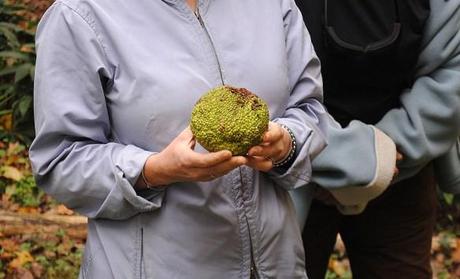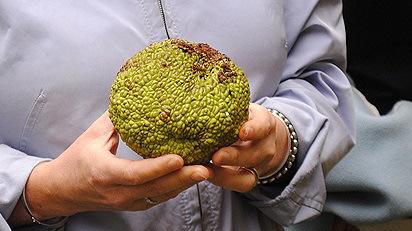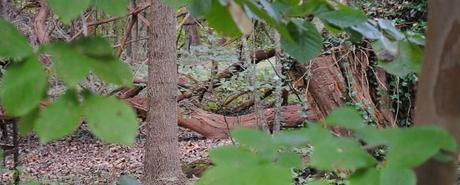Halloween may be over, but the appeal of Osage orange fruit endures.

The fruit of Maclura pomifera, Osage orange.
On my recent tour of Montrose, we found some unusual looking objects lying about on the ground in the woods. Nancy Goodwin informed us that these are the fruits of Maclura pomifera, also known as Osage orange.
This relative of the mulberry grows as a small tree, between 20-50 feet tall. The fruits, which contain a milky, latex-like juice, are not poisonous to humans, but they don’t taste good. The fruits will float in water. The plant adapts to a wide variety of growing conditions, grows rapidly, and is mostly pest- and disease-free.

The wood is attractive, dense, and extremely strong. Native Americans used the wood for bows. The tree was also planted heavily by the WPA in its Great Plains Shelterbelt program.

The wood of Maclura pomifera is strong, dense, stable, and beautiful. It is said to repel cockroaches.
But the plant’s best feature, arguably (though that fruit is quite compelling), is that it repels cockroaches, mosquitoes, and other insects. Studies have found that extracts from the plant perform as well as DEET in repelling mosquitoes.
Want one?

